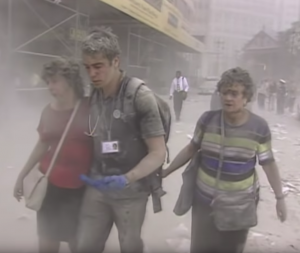 People exposed to the dust from the destruction of the World Trade Center (WTC) in New York on September 11, 2001 have high rates of systemic automimmune diseases, according to US researchers.
People exposed to the dust from the destruction of the World Trade Center (WTC) in New York on September 11, 2001 have high rates of systemic automimmune diseases, according to US researchers.
Rheumatoid arthritis, Sjӧgren’s syndrome and lupus are among the many autoimmune conditions being reported at high rates in a cohort of 43,133 rescuers and clean-up workers enrolled in the WTC Health Registry .
In a follow up of 2,786 people who self-reported auto-immune disorders, researchers checked medical and medication records as well as diagnoses provided by rheumatologists and other clinicians.
They were able to confirm systemic autoimmune diseases in 118 people, with RA the most frequent (n=71), followed by Sjӧgren’s syndrome (n=22), SLE (n=20), myositis (n=9), mixed connective tissue disease (n=7), and scleroderma (n=4).
After adjusting for other variables, responders who had dust exposure had almost twice the risk of auto-immune disorders (adjusted risk ratio = 1.86) compared to a matched control group. PTSD was also an exacerbating factors, associated with a nearly three-fold increased risk of auto-immune disorders in community members compared to unexposed control group.
About half the cases were found in rescue and clean-up workers and half in community members exposed to dust in downtown Manhattan on 9/11.
The higher than usual rates of autoimmune diseases seen among the mostly male rescue and clean-up workers were significant because the diseases are typically more common among females, the study authors said.
“Responders were not always able to wear appropriate respiratory protection, which may have resulted in increased inhalation of fine particulate matter (PM2.5), crystalline silica, asbestos, and organic hydrocarbon solvents, all of which have a documented association with autoimmune disease,” they wrote in Arthritis and Rheumatology.
The risk of autoimmune disease appeared to increase about 10% with every month of occupational exposure to the debris and dust of the WTC, the study found.
The pollutants in the 9/11 dust cloud have been hypothesized to induce systemic autoimmune diseases via inflammatory pathways, dysregulation of the immune response, and increased peptide citrullination, the authors said.
Environmental risk factors have been associated with epigenetic DNA methylation changes, with reduced methylation being associated with increased susceptibility to and severity of conditions such as SLE.
The findings should highlight to clinicians that a combination of exposure to pollutants in dust and PTSD can increase the risk of systemic auto-immune disorders, they concluded.
“Given that they are difficult to diagnose, it is not surprising that only in recent years a pattern of increased risk by level of 9/11 exposure has emerged. It also demonstrates the need to monitor the health of populations affected by a disaster over the long term,” they wrote.